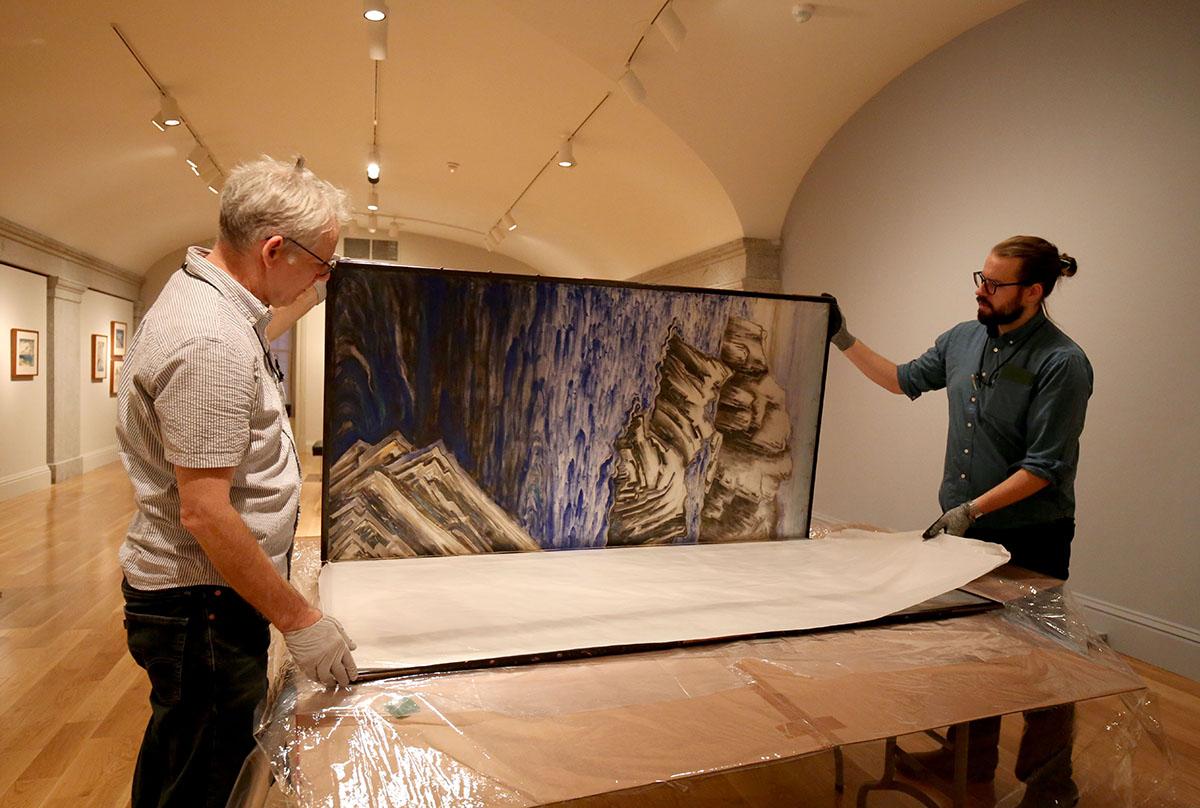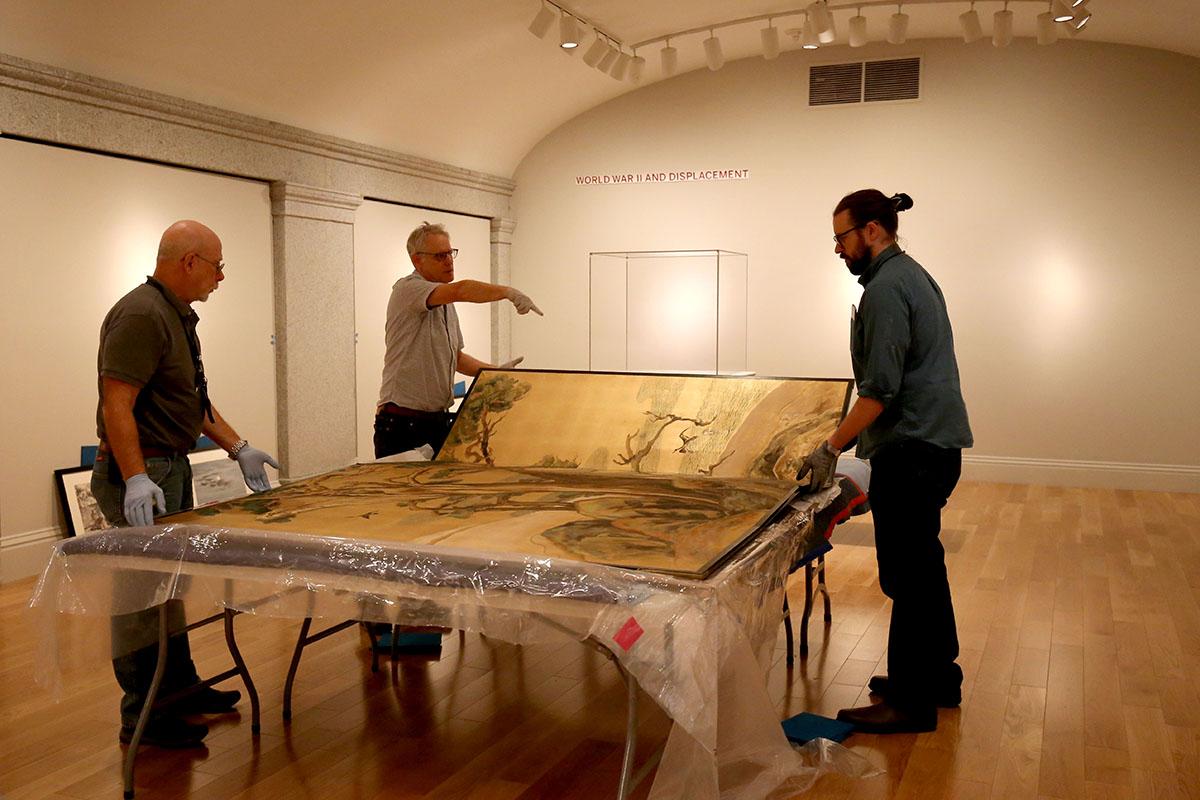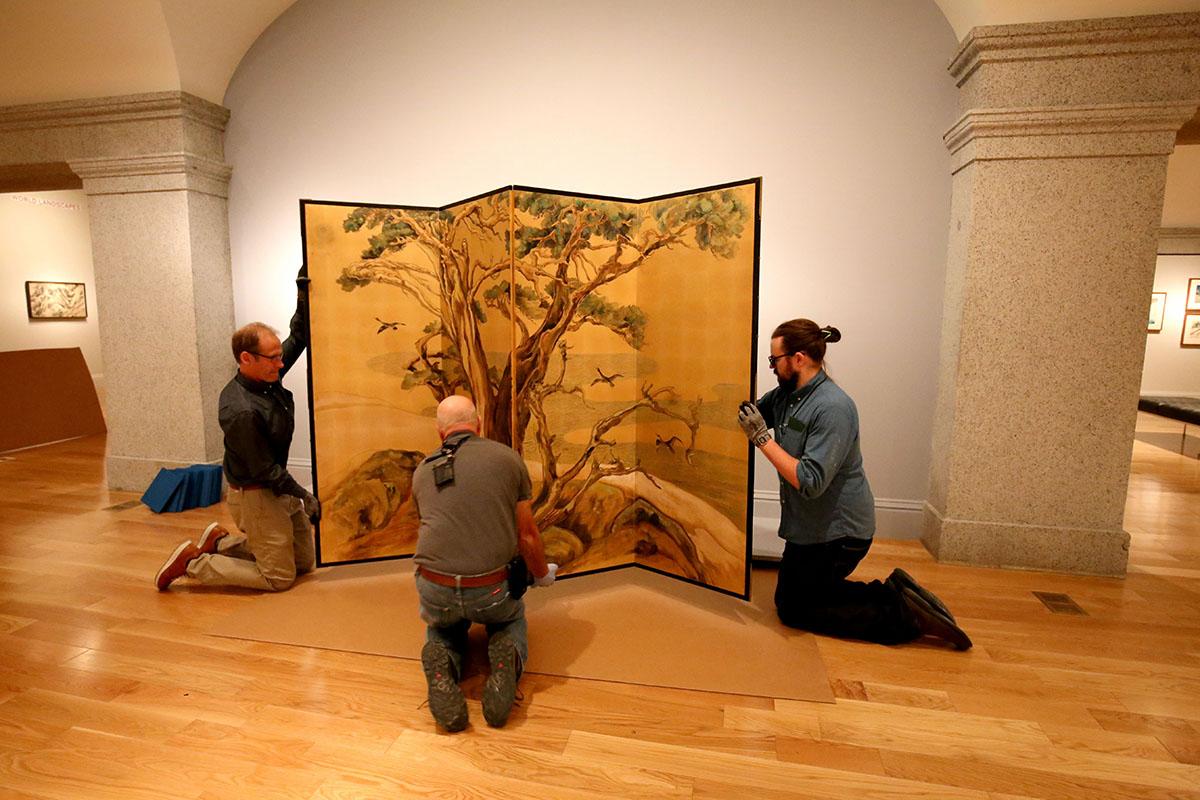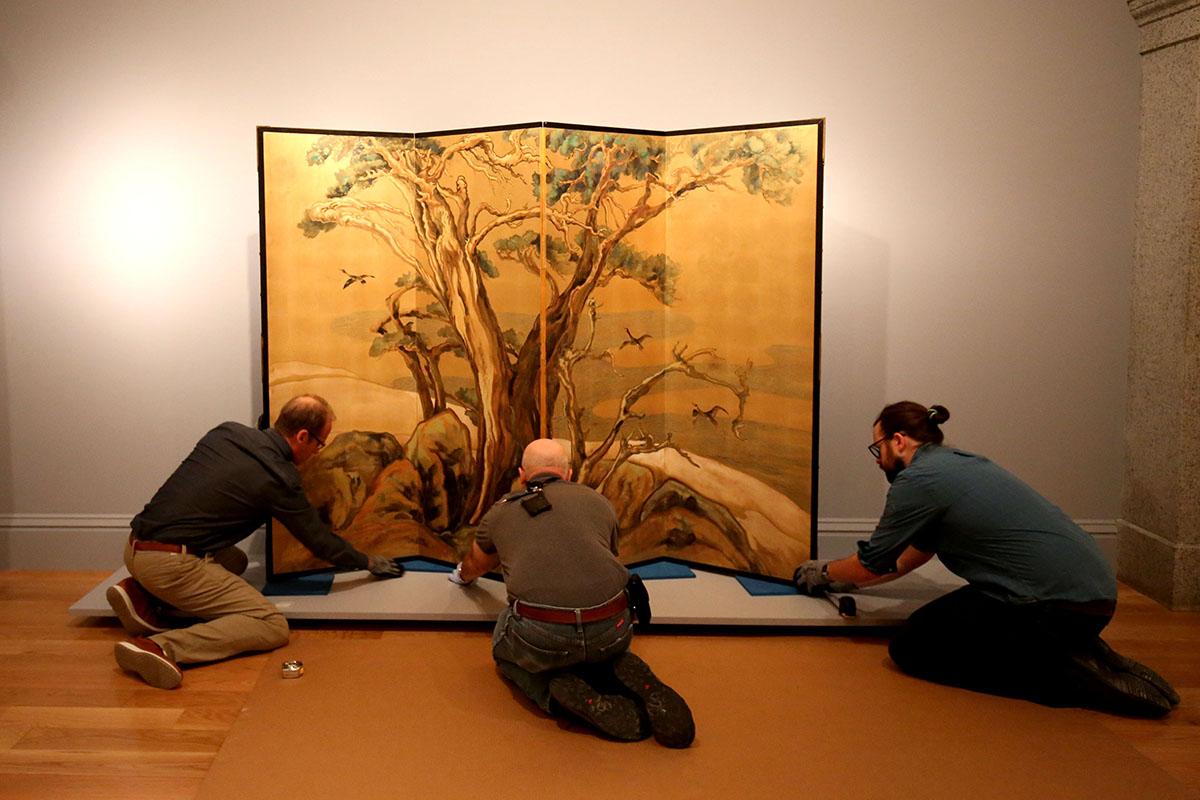Ever wonder what happens to get an exhibition open at an art museum? Me too. There's a ton of work that goes on behind the scenes that visitors don't usually see. Just as artwork often times has a hidden story or meaning, so too do the walls of museums. You may not see all that has happened before you visit, but there are many teams of professionals—From registrars, conservators, designers and art handlers to fundraisers, curators, and publicists—working together to bring an exhibition to life. From the planning and research done by curators to the final wall text and lighting in gallery, the story of how an exhibition comes to life is made up of many moving parts and fits together like a puzzle.
Here at SAAM, we are preparing to open Chiura Obata: American Modern and I had a chance to stop by the galleries for a few behind-the-scenes photographs. While SAAM 's collection contains a superb selection of woodblock prints by Obata, I was excited to see two of the artist’s folded screens, which are much larger in scale.
Watching our team come together to unpack these big pieces was interesting for me. I usually spend my days viewing artwork in a digital format and not in person. So to witness the installation of these works from a wooden shipping crate to standing on a platform in the galleries was exciting.
The installation team started by carefully placing the artwork on blankets and cardboard to protect it. While unpacking, a conservator, a registrar, a frames specialist, and an exhibition designer all planned the steps necessary to carefully move the artwork from laying horizontally to standing vertically. They made sure to inspect the artwork and pay attention to its hinges, to hold it in the correct position, and finally to position it on the platform in a manner that was centered equally from edge to edge.
I challenge you next time you find yourself in an art museum to look a bit closer. What do you see besides the artwork? Note the quantity of work on the walls, the equal spacing between frame to frame, how a work is hung at eye level, the way you move around an exhibition, the careful grouping of artworks to tell a story, the text on the wall, and light that illuminates it all. These are all details of an exhibition we may not normally think about, but these details shape the way we experience the artwork.
As we approach this holiday season, practice the art of looking at things with greater appreciation. Practice the art of seeing the details you don't normally come to a museum to see. It's in the details of life that art sometimes emerges.
Chiura Obata: American Modern is on view from November 27, 2019 to May 25, 2020.
























